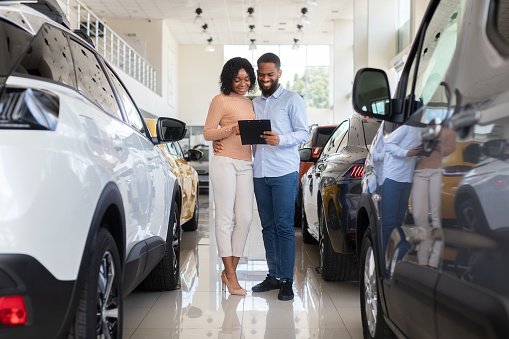Introduction.
Starting a car dealership business in Nigeria is a great idea if you’re looking to tap into a booming market with huge growth potential.
With the rise in car ownership, a growing middle class, and a steady demand for both new and used vehicles, now might be the perfect time to start your own dealership.
The car market in Nigeria is massive, and while competition can be tough, there’s plenty of room for newcomers who know how to approach it the right way.
This article will guide you step-by-step on how to get started, from the basics of understanding the market to finding the right cars, setting up your dealership, and making sure your business runs smoothly. If you’re serious about setting up a car dealership in Nigeria, this is everything you need to know.
How Do I Start a Car Dealership Business In Nigeria?
Step 1: Understand the Nigerian Car Market
Before you dive in, it’s important to first understand the landscape of the Nigerian car market. Nigeria is the largest car market in West Africa, with a population of over 200 million people.
What does this mean for you? Simply put, people in Nigeria love their cars. Whether it’s a luxury vehicle, a family car, or a second-hand ride, there’s always demand. But there’s also a lot of competition, so finding your niche is important.
Will you focus on selling new cars, used cars, or a mix of both? Are you going to cater to the high-end luxury market or more affordable options for the average Nigerian?
Step 2: Write a Solid Business Plan.
Like any business, your car dealership needs a solid plan. This plan will serve as the blueprint for your business and guide you through every stage. A good business plan should cover:
- Market Research: Understand the demand in your area. Are people buying luxury cars, SUVs, or smaller, budget-friendly cars? Get data and try to understand who your target customers are.
- Budget: Know how much money you need to start. This includes the cost of buying cars, setting up a showroom, marketing, staff salaries, and other overhead costs.
- Location: The location of your dealership is key. A dealership in a busy, populated area is likely to attract more customers, but rent can be expensive. Find a balance that works for your budget.
- Competitors: Look at other dealerships in your area. What are they offering, and how can you do things differently? Finding a gap in the market can be a great way to stand out.
Your business plan will also help if you need to get a loan or investors to fund your dealership. Having a clear vision for your business will show that you’re serious and prepared.
Step 3: Get the Right Licenses and Permits.
In Nigeria, you need the proper licenses and permits to run a car dealership legally. These include:
- Corporate Affairs Commission (CAC) Registration: This registers your business and makes it official.
- National Automotive Design and Development Council (NADDC) License: This is important if you’re importing or selling cars in Nigeria.
- Tax Identification Number (TIN): You’ll need this for tax purposes.
- State Government Permits: Depending on where you’re setting up, you may need specific local permits from the state or local government.
Make sure you have all your legal requirements in place before you open your dealership.
Step 4: Choose a Location for Your Dealership
Choosing the right location is one of the most important decisions you’ll make. A prime location can make all the difference in attracting customers.
Most car buyers will want to visit your dealership in person, so pick a place that’s easily accessible and in a busy area.
Some cities like Lagos, Abuja, and Port Harcourt have high demand for cars, but they’re also competitive, so consider the pros and cons of each area.
It’s also worth considering the size of the space. You’ll need enough room to display cars, create an office space for your staff, and potentially even have a service area for repairs.
Step 5: Secure a Reliable Supply of Cars.
You’ll need to figure out how you’re going to source the cars you plan to sell. You can either buy them from local manufacturers or import them from other countries.
- Local Manufacturers: Some brands like Innoson and Peugeot Nigeria produce vehicles locally. Partnering with these manufacturers could give you easier access to stock.
- Importation: Many Nigerian car dealerships also import cars from countries like the US, Japan, and Europe. If you choose this route, you need to factor in shipping costs, customs duties, and clearing fees, which can be expensive.
Having a reliable and consistent supply of cars will ensure that your dealership has a steady stream of vehicles to sell. Make sure to partner with trusted suppliers and stay on top of any legal requirements for imports.
Step 6: Build Relationships with Car Buyers
Once you have your cars and your dealership set up, it’s time to start selling. A big part of running a successful car dealership is building relationships with your customers.
People want to trust the dealership they’re buying from, so make sure to provide excellent customer service, be transparent about the cars you’re selling, and offer fair prices.
It’s also important to offer financing options. Many car buyers in Nigeria opt to pay in installments, so having partnerships with banks or financial institutions to offer financing can make your dealership even more attractive.
Step 7: Marketing Your Dealership
To stand out, you need to market your dealership. Start by creating a website where potential customers can browse your inventory.
Social media is also a powerful tool—Facebook, Instagram, and Twitter can help you showcase your cars, connect with customers, and generate leads.
You can also try traditional marketing methods, like radio ads, flyers, and billboards, especially if you’re in a busy city. Make sure to use every channel available to get the word out about your dealership.
Step 8: Set Up a Good After-Sales Service
Finally, offering after-sales services can set you apart from the competition. Consider providing things like warranties, free servicing for a certain period, or discounts on future purchases.
A satisfied customer is likely to return or recommend your dealership to others. Good after-sales service can help you build a loyal customer base.
FAQs
How much capital do I need to start a car dealership in Nigeria?
The amount of capital you need will vary depending on the location, the size of the dealership, and the type of cars you plan to sell. It could range anywhere from a few million Naira to tens of millions. Start small, and grow gradually as your business becomes more established.
Is it better to sell new or used cars in Nigeria?
Both options have their pros and cons. New cars often bring in higher profits, but they can be harder to sell because of their high cost. Used cars have lower profit margins, but they’re often in higher demand due to their affordability. Consider a mix of both.
What are the best cities to start a car dealership in Nigeria?
Lagos, Abuja, Port Harcourt, and Kano are some of the best cities for car dealerships due to their large populations and higher demand for cars. However, each city has its own set of challenges and opportunities, so do your research before deciding.
Conclusion
Starting a car dealership in Nigeria can be incredibly rewarding. With the right planning, location, and approach, you can tap into a growing market and build a successful business.
If you’re passionate about cars, enjoy working with people, and are ready to put in the work, then this business could be for you.
So, what are you waiting for? Ready to take the leap and start your own car dealership today?





GIPHY App Key not set. Please check settings